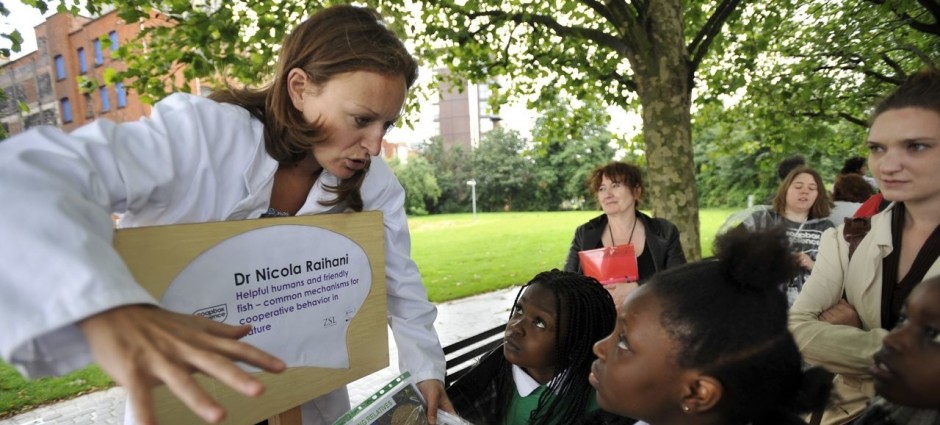 Shanti Shanker is a Lecturer in Cognitive Psychology at the University of Bournemouth. She works on the brain mechanisms of cognitive control and executive functions. Come and hear her speak about the “Spotless mind: the science behind selective forgetting!” in Exeter on the 11th of June!
Shanti Shanker is a Lecturer in Cognitive Psychology at the University of Bournemouth. She works on the brain mechanisms of cognitive control and executive functions. Come and hear her speak about the “Spotless mind: the science behind selective forgetting!” in Exeter on the 11th of June!
SS: Shanti, how did you get to your current position?
SS: I had few years of experience before I embarked on my PhD (in Neuropsychology, Bangor University) and it was exactly what I had envisaged. The PhD topic was an interesting idea that eventually was guided with inputs from my supervisors (one of whom was a neuroscientist, one a neuropsychologist and the other a neurologist). During the three years of my PhD I continued to contribute to teaching and few other projects. I am aiming to submit my thesis quite soon, and will continue my collaboration with Prof. Michael Anderson and Prof. Oliver Turnbull. My current position (Lecturer – in Cognitive Psychology) is the perfect fit, gives me the opportunity to teach and continue my research in areas of neuropsychology and neuroscience. As they say, life happens when you are not paying attention. This was one of the best things in my academic journey, life just continues!
SS: What, or who, inspired you to get a career in science?
SS: As a kid from Bombay, I was always inspired by women in science. I was always interested in understanding the human brain and especially how it contributes to everyday functions. It was only later in life that I understood the nuances of neuroscience. Professor Anthony Wagner is my first mentor, and he is one of the people who have inspired me to continue a career in science. Also, Professor Emily Cross who joined Bangor University as I started my PhD, is another inspiration – her passion and focus is very infectious.
SS: What is the most fascinating aspect of your research/work?
SS: The human brain and interaction with clinical patients! The ability to understand specific functions in the brain is beautiful. But each time I see my patients and speak to them, the human brain never fails to amaze me. Especially, how each person’s experience can be unique yet there is that collective understanding!
SS: What attracted you to Soapbox Science in the first place?
SS: Being passionate about the brain, this was an excellent opportunity to interact people from other fields. An avenue to use creativity to spread the passion of learning and understanding how science can influence our everyday activities and encourage curiosity.
SS: Sum up in one word your expectations for the day – excitement? Fear? Thrill? Anticipation?
SS: Enthusiasm.
SS: If you could change one thing about the scientific culture right now, what would it be?
SS: Personally, I would like to convey that passion, focus and resilience is key to be successful in science and not just opportunities or getting the right fit. Each one (especially females) can find their niche and science is definitely not for any selected few.
SS: What would be your top recommendation to a female PhD student considering pursuing a career in academia?
SS: Be resilient!
